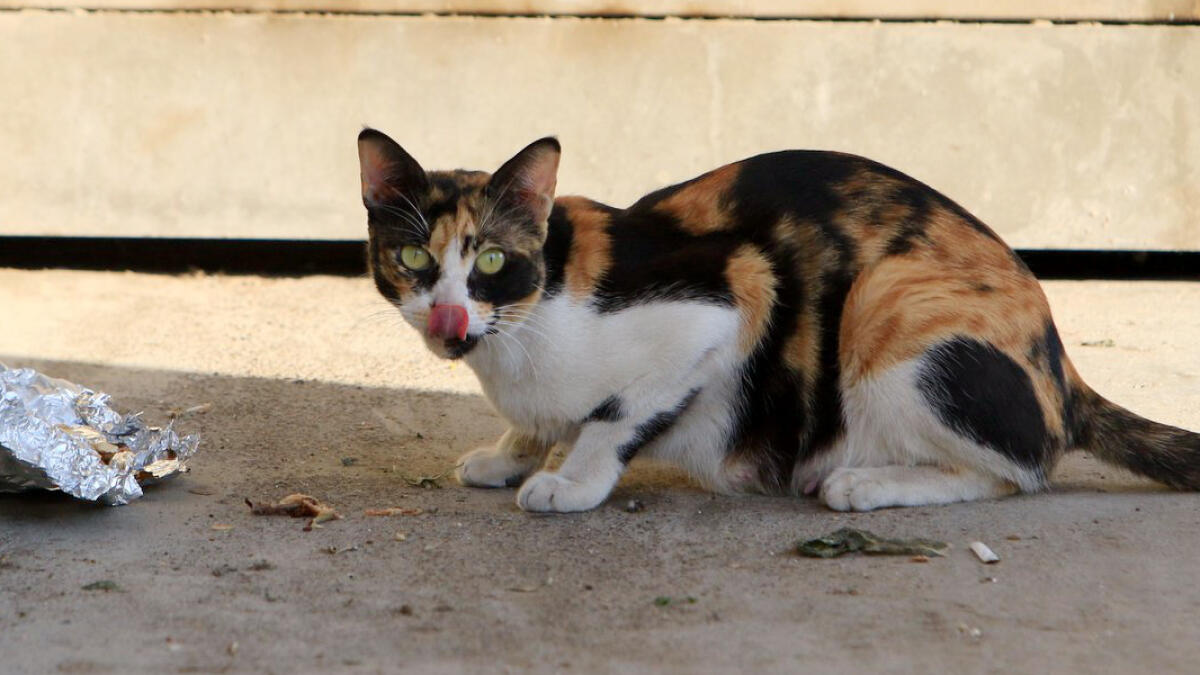A UAE-based anthropologist, Dr. Neha Vora, has been studying the impact of stray cats on society and has found that some residents in the country spend more than half of their salary on caring for these animals. She has been exploring the sense of belonging among the diaspora in the UAE and has discovered that stray cats play a significant role in creating a sense of attachment. Dr. Vora highlighted the dedication and effort that people put into caring for these strays, with some individuals foregoing holidays to ensure the well-being of the cats in their absence.
She observed that many security guards and restaurant workers in areas like Bur Dubai, Deira, and Karama regularly feed stray cats, indicating a strong sense of belonging and connection with these animals. However, feeding stray animals is considered a punishable offense under UAE law, with fines imposed on those who engage in this activity. Abu Dhabi residents are advised to report stray animals to the Centre of Waste Management, while Dubai Municipality offers veterinary clinics for strays. Despite the legal restrictions, the bond between residents and stray cats remains strong.
Dr. Vora will be hosting a workshop titled ‘Let’s Talk About Cats: A study of non-human place making’ at the Al Serkal arts foundation, focusing on the integration of cats into society. The event, which has been completely sold out, reflects the deep care and concern that people have for cats in the UAE. While still in the early stages of her research, Dr. Vora has found evidence that cats help residents feel connected to the country, especially for those who are away from their families. Feeding and caring for stray cats provide a sense of belonging and comfort to individuals.
One Abu Dhabi resident, as shared by Dr. Vora, spends hours every day feeding and caring for stray cats, using a wheelbarrow to distribute food in the neighborhood. The relationship with stray cats offers a sense of belonging and security to many residents in the UAE, especially those who feel a lack of permanence in the country. For night watchmen and others who work long hours, the companionship of stray cats provides emotional support and makes their work easier. Dr. Vora’s research showcases the emotional and social benefits of interacting with stray cats.
Dr. Vora’s fieldwork revealed the widespread presence of cats in communities across various social classes, forming friendships among people who share a love for these animals. Informal groups and volunteers work together to care for strays, often engaging in activities like trap, neuter, and rescue to ensure their safety. The dedication of volunteers who spend time and resources to care for stray cats is a testament to the strong emotional connection that exists between residents and these animals. The bond over a shared love for cats transcends social barriers, creating a sense of community and support among individuals in the UAE.
Given her passion for cats and her positive experiences in the UAE, Dr. Vora emphasizes the importance of her research and the opportunity to study the human-animal bond in the country. Her work sheds light on the emotional significance of caring for stray cats and the sense of belonging that these animals provide to residents, especially those who may feel isolated or insecure in their environment. Through her research, Dr. Vora aims to raise awareness about the role of stray cats in society and the benefits of fostering meaningful relationships with these animals.










